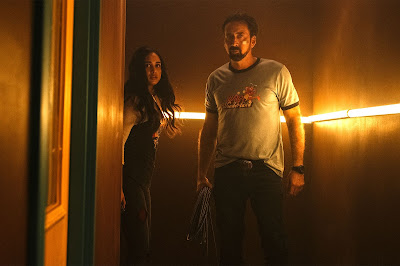Sunday, September 26, 2021
Taxi Driver / **** (1976)
Friday, July 16, 2021
"The Shining" Revisited
What is it about the Overlook Hotel that casts such an ominous cloud? How do the mysterious, inexplicable events surrounding a small and isolated family affect the terror they inflict on one another? These are just two of the broad questions hovering over a long mystery in “The Shining,” a movie of ageless dexterity that also remains one of the more fascinating case studies in academic film analysis. When it arrived in theaters over four decades ago, the conventional wisdom at the time had been swift and dismissive: the exacting hand of one Stanley Kubrick had lost sight of a cogent vision, supplementing the famous source material by Stephen King with so much surrealistic ambiguity and nonsense that he had released a labyrinthian mess instead of a probing psychological essay. But much like his own “A Clockwork Orange” and “2001: A Space Odyssey,” time has offered a generous reassessment, and now the picture is usually seen hovering towards the top of most lists of the greatest horror movies ever made. When I first encountered it at the age of 15, my admiration for its technical skill and tone were undermined by an inability to decipher the clues. What was happening to the Torrance family? Were they being haunted by ghosts, pitted against one another by elaborate mind games? Would they have been seen if the young boy at the center of the action were not clairvoyant? Or were they simply imagined by people whose sanity had been compromised by isolation? Over 20 years and dozens of viewings later, I can finally speak with confidence on some of the great paradoxes the story weaves.



